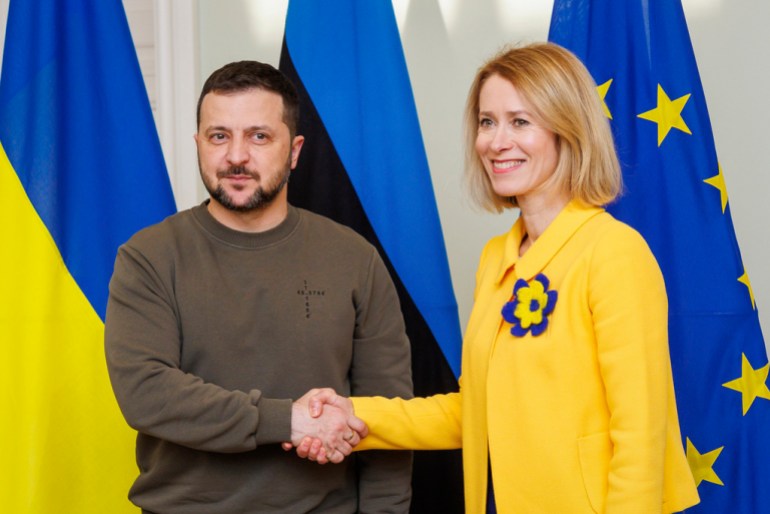As Estonian PM Kaja Kallas is targeted by Russian police, intel chief warns Russian war on West coming in ‘next decade’.
Russia has put top officials from the Baltic states on its wanted list as tension continues to simmer amid the war in Ukraine.
Russian foreign ministry spokeswoman Maria Zakharova said on Tuesday that Estonian Prime Minister Kaja Kallas and two other top Baltic officials have been added to the country’s wanted list. The move coincided with the release of an Estonian intelligence report warning that Russia is gearing up to wage war on the West in the coming decade.
Kallas, Estonian State Secretary Taimar Peterkop and Lithuanian Culture Minister Simonas Kairys have been listed on the interior ministry’s database due to the “destruction” of monuments to Soviet soldiers.
Estonia, Latvia and Lithuania have removed numerous Soviet-era memorials since they gained independence as the Soviet Union broke up in 1991. That process, which had already soured relations with Moscow, has gained momentum since Russia invaded Ukraine.
Following up, Kremlin spokesman Dmitry Peskov accused Kallas of conducting hostile actions against Russia. Like her counterparts in Latvia and Lithuania, the Estonian leader is among Europe’s most outspoken supporters of Ukraine.
“The regime is doing what it has always done: it is trying to stifle freedom … and to continue to create its own version that is at odds with facts or logic,” said Kairys in a statement relayed via AFP.

‘Anticipating conflict’
The same day, Estonia’s chief of intelligence claimed that Russia is “anticipating a possible conflict with NATO within the next decade or so”.
Unveiling the country’s annual report on national security threats, Kaupo Rosin said the assessment was based on Russia’s plans to double the number of troops stationed along its border with the Baltic states and Finland, all of which are NATO members.
However, the report noted that with Russian forces bogged down in Ukraine, a direct military attack on the West in the short term is “highly unlikely”.
At the same time, the intelligence chief noted United States presidential candidate Donald Trump’s comments that he would not defend allies who don’t spend enough on defence, saying “such statements are never helpful”.
Estonia and the other Baltic States have increased their military spending to more than 2 percent of gross domestic product since Russia annexed Crimea in 2014, and NATO allies have raised their presence in those countries.
Germany plans to have 4,800 combat-ready troops in the region by 2027, in its first permanent foreign deployment since World War II.









